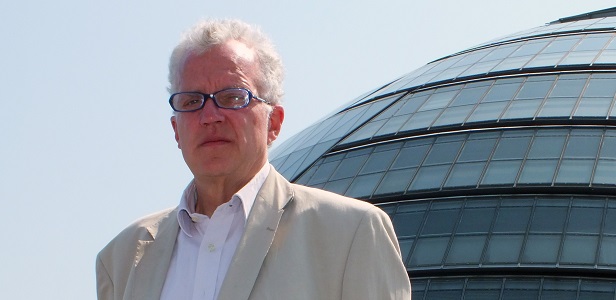THE people of the Chilterns are unlikely rebels yet they are furious about the plan to build a high-speed rail line through their unspoilt bit of Britain, even though the scheme was devised by the Tory Party most of them support.
Last weekend more than 500 protesters gathered to galvanise opposition against the proposal, which goes out to consultation this week. That’s just the start. Celebrities are being rounded up, huge sums are being raised and people up and down the line are voicing their anger.
Chiltern residents are right to oppose HS2, as it’s called, but they cannot win by relying on Nimby arguments alone.
I am a railway historian who enjoys nothing better than a long train journey, whether for business or pleasure, yet I am opposed to HS2 for many reasons, not least because there is neither an economic nor environmental case for it. I hope common sense will prevail and investment is put into our existing system instead.
Let’s look at the economic argument. This is based on a piece of mumbo-jumbo called a “business case” which actually falls apart as soon as it is examined. The Government says the £17billion cost of the line between London and Birmingham is worth it because it will attract more than twice that amount in “benefits”.
What are these benefits? They are not for the most part fares income but rather the small savings made by people using the line. These account for nearly £20billion of the supposed £32billion benefits and are calculated on the basis that the value of these travellers’ time is equivalent to a salary of £70,000 a year. So every minute saved is worth about 50p or £30 an hour, which suggests the promoters think the line will be used mostly by fat-cats.
Such “savings” also assume that travel time is wasted. That may be the case in a car, where even making a hands-free call can be unwise, but a train with internet access and laptops can be a wonderful working environment.
The other big flaw in the “business case” is that it is based on ever-increasing demand for rail travel. Incredibly the Government is suggesting that for every two passengers on the West Coast mainline today there will be five in 2026 when the HS2 line opens. That’s an unprecedented level of growth.
Building the line will enable people to commute between England’s main two cities but is that to be encouraged? Far from benefiting the regions it may well concentrate yet more of the economy in the capital. Further, only the rich will be able to use the service regularly as there is bound to be a premium fare. It is amazing that at a time of such austerity the Government is prepared to spend £750million during this parliament on developing the plan for the line.
You could understand it if the idea was to save the planet but the scheme has no environmental benefit. Ministers have suggested that HS2 is an alternative to a third runway at Heathrow but this is bunkum. Even when the line is extended to Manchester and Leeds in the 2030s few airline passengers will be attracted.
High-speed trains are also less environmentally friendly than their slower counterparts. That is why the Government’s own report on HS2 found that the scheme is broadly carbon neutral, which means that billions are being spent on a project with no environmental benefit.
At the last election the main political parties supported the line and even environmental groups seemed quietly supportive. Now that more details are emerging and the scale of the cost becoming known, cracks are appearing. Labour is already wavering and green groups are beginning to lobby against it.
The best argument for the line is that the West Coast mainline is filling up with passengers and there is a need for extra capacity. However there is a much cheaper alternative. For just over £2billion, spent on longer trains and track improvements, the capacity of that line could be boosted by almost as much as a new line, without damage to the Chilterns.
HS2 will neither take planes out of the sky nor make any significant reduction to traffic levels on the M1. If it did it would have my wholehearted support.
YES, other European countries have successful high-speed trains but the reality is that they are not needed here. There are crucial differences in geography and the pattern of towns and we already have excellent services between London and the towns that would be served by the line.
These arguments are beginning to be deployed effectively by the protesters. The consultation process is bound to heat up the debate and as the case for the line founders on the twin rocks of environment and economics ministers may well decide it’s best to quietly postpone further spending on this overhyped project.
They would be wise to do so as the protests against the selling-off of our forests showed that once Middle England gets angry it is a force to reckon with.
Read more: http://www.express.co.uk/posts/view/231438Why-super-fast-rail-service-has-to-be-derailed#ixzz1FAt0ohQn
